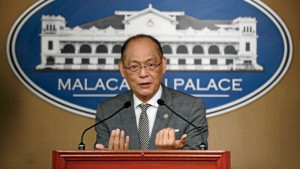MANILA — Budget Secretary Benjamin E. Diokno has announced that the government will roll out budget reforms to prevent underspending, including a closer scrutiny of spending per projects starting 2018, while pushing for the passage of bill that will institutionalize reforms implemented thus far.
“A reform that the public can look forward to is what we call the Program Expenditure Classification or PREXC. To be implemented in 2018, this reform restructures agencies’ budgets to group all recurring activities and projects under appropriate programs or key strategies,” Diokno told members of the Financial Executives Institute of the Philippines at the group’s general membership meeting on Wednesday.
“Likewise, performance targets will be set at the level of programs. This will be a departure from the status quo where funds are assigned at the level of agencies or major final outputs,” Diokno added. “With this impending budget structure, we will be able to clearly see and monitor where are our public funds are going and how it contributes to national development.”
In 2015, then Budget Secretary Florencio B. Abad announced the plan to implement PREXC this year.
Diokno said the Duterte administration “will not tolerate underspending,’ such that the government “will exert all effort to prevent it from happening again.”
The budget chief estimated that the underspending of the previous Aquino administration had hit about P1 trillion. He had arrived at that huge amount by comparing the authorized appropriations with actual expenditures during the years 2011 until 2016.
Besides the rollout of PREXC, Diokno said the Department of Budget and Management would push for the passage of a budget reform bill, “which will institutionalize budget data disclosure, civil society participation in budgeting and all the necessary ingredients of a modern budget system.”
“This proposed measure also seeks to clarify the limits of the executive’s budgetary powers and strengthen the Congress’ power of the purse,” Diokno said.
“More importantly, the budget reform bill will mandate a budget system that is cash-based than obligation-based. Obligations are intentions, not expenditures. The current system of obligation-based appropriation does not promote disciplined execution of the annual budget,” Diokno added.
According to Diokno, the DBM “will fight tooth and nail for the passage of the budget reform bill, so that it will passed into law as soon as possible.” It helped that the proposed measure was identified as among the priorities of the Legislative Executive Development Advisory Council (Ledac) when it met last month, Diokno said.
“We believe it [the budget reform bill] embodies and consolidates most of the public financial reform we have in mind. It is crucial to an efficient, disciplined and transparent budgetary framework,” according to Diokno. SFM


